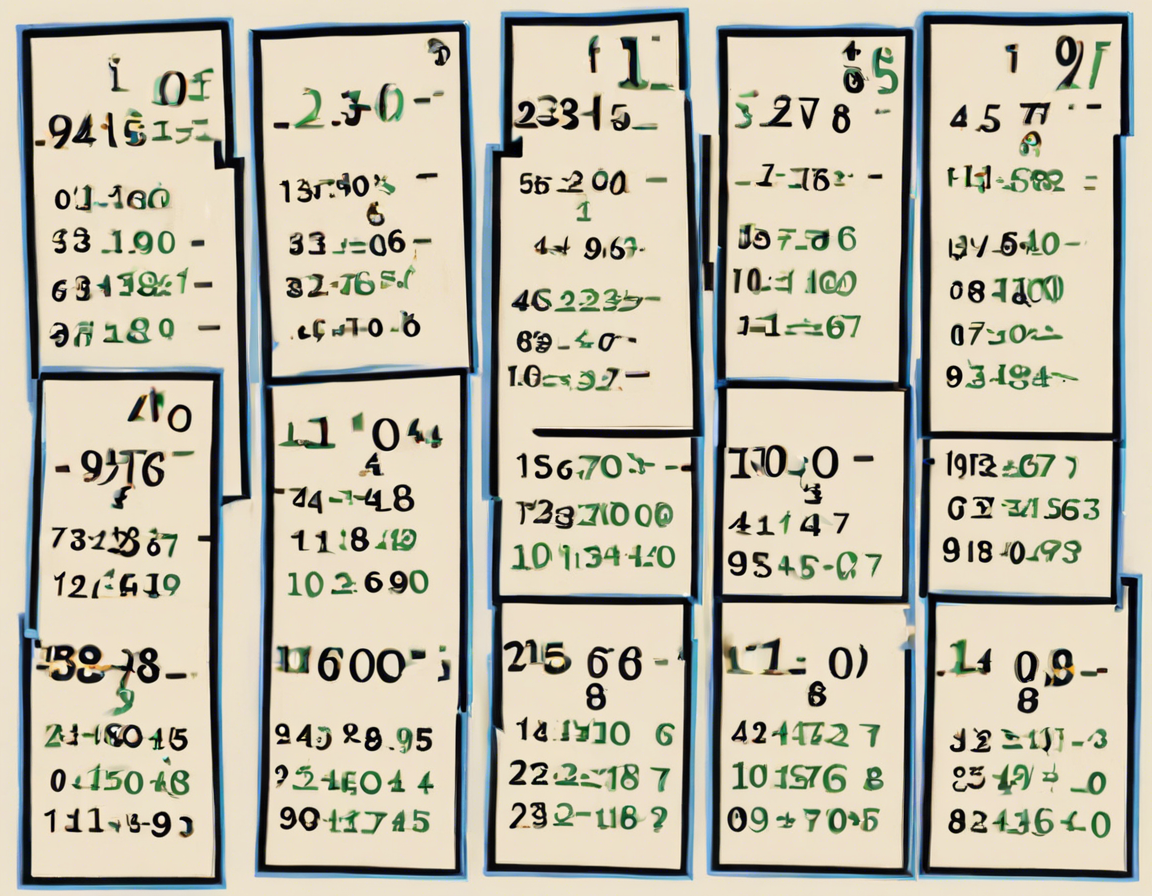In the realm of mathematics, the classification of numbers into different sets can sometimes be confusing. The distinction between whole numbers and natural numbers is a common source of confusion among students and even some adults. To answer the question directly, every natural number is a whole number, but not every whole number is a natural number. To understand this concept better, let’s delve deeper into the definitions and characteristics of whole numbers and natural numbers.
Natural Numbers
Natural numbers are the set of numbers used for counting and ordering items. They are typically represented by the symbol N. Natural numbers start from 1 and extend infinitely. Therefore, N = {1, 2, 3, 4, 5, …}. Natural numbers do not include negative numbers, zero, or fractions. They are essentially the numbers you would count with: 1 apple, 2 oranges, 3 books, and so on.
Whole Numbers
Whole numbers, denoted by the symbol W, include all the elements of the natural numbers set plus the number 0. Therefore, W = {0, 1, 2, 3, 4, 5, …}. In essence, whole numbers are the numbers starting from zero onwards without including fractions or negative numbers.
To summarize, all natural numbers are whole numbers because they are part of the whole numbers set. However, whole numbers also include zero, which is not included in the set of natural numbers.
Characteristics of Whole Numbers and Natural Numbers
Here are some key characteristics that differentiate whole numbers from natural numbers:
Natural Numbers:
- Start from 1: The set of natural numbers starts from 1 and progresses infinitely.
- Do not include zero: Natural numbers do not contain zero in their set.
- Used for counting: Natural numbers are used for counting items, people, or things.
Whole Numbers:
- Start from 0: The set of whole numbers starts from 0 and progresses infinitely.
- Include zero: Whole numbers include zero as part of their set.
- Used for counting and representing value: Whole numbers are used not just for counting but also for representing values and quantities.
Relationship Between Whole Numbers and Natural Numbers
As mentioned earlier, the relationship between whole numbers and natural numbers can be described as inclusion. All natural numbers are a part of the whole numbers set because whole numbers include zero along with all the natural numbers. However, whole numbers have a broader scope as they encompass zero and the positive integers without any fractions or decimals.
Key Differences Between Whole Numbers and Natural Numbers
Let’s outline the key differences between natural numbers and whole numbers:
-
Starting Point: Natural numbers begin with 1, while whole numbers begin with 0.
-
Inclusion of Zero: Natural numbers do not include zero, whereas whole numbers do include zero.
-
Usage: Natural numbers are primarily used for counting, while whole numbers are used for counting and as positional numbers.
-
Symbol Representation: Natural numbers are represented by N, and whole numbers are represented by W.
Frequently Asked Questions (FAQs)
1. Can you provide examples of natural numbers and whole numbers?
- Natural numbers examples: 1, 2, 3, 4, 5, …
- Whole numbers examples: 0, 1, 2, 3, 4, 5, …
2. Why is zero not considered a natural number?
- Zero is not considered a natural number because natural numbers are used for counting, starting from 1. Zero represents the absence of quantity, which is why it is classified as a whole number but not a natural number.
3. Are negative numbers part of the whole numbers set?
- No, negative numbers are not part of the whole numbers set. Whole numbers include zero and all positive integers, but they do not include negative numbers.
4. What is the difference between integers and whole numbers?
- Whole numbers include zero and all positive integers, while integers include zero, positive integers, and negative integers. Integers have a broader scope compared to whole numbers.
5. Why are whole numbers essential in mathematics?
- Whole numbers are essential in mathematics as they form the foundation for counting, representing quantities, and understanding the concept of zero. They play a crucial role in arithmetic operations and mathematical computations.
In conclusion, while the terms whole numbers and natural numbers are closely related, there are distinct differences that set them apart. Understanding these variances is fundamental in building a strong foundation in mathematics and number theory. Remember, every natural number is a whole number, but the reverse is not true due to the inclusion of zero in the whole numbers set.
